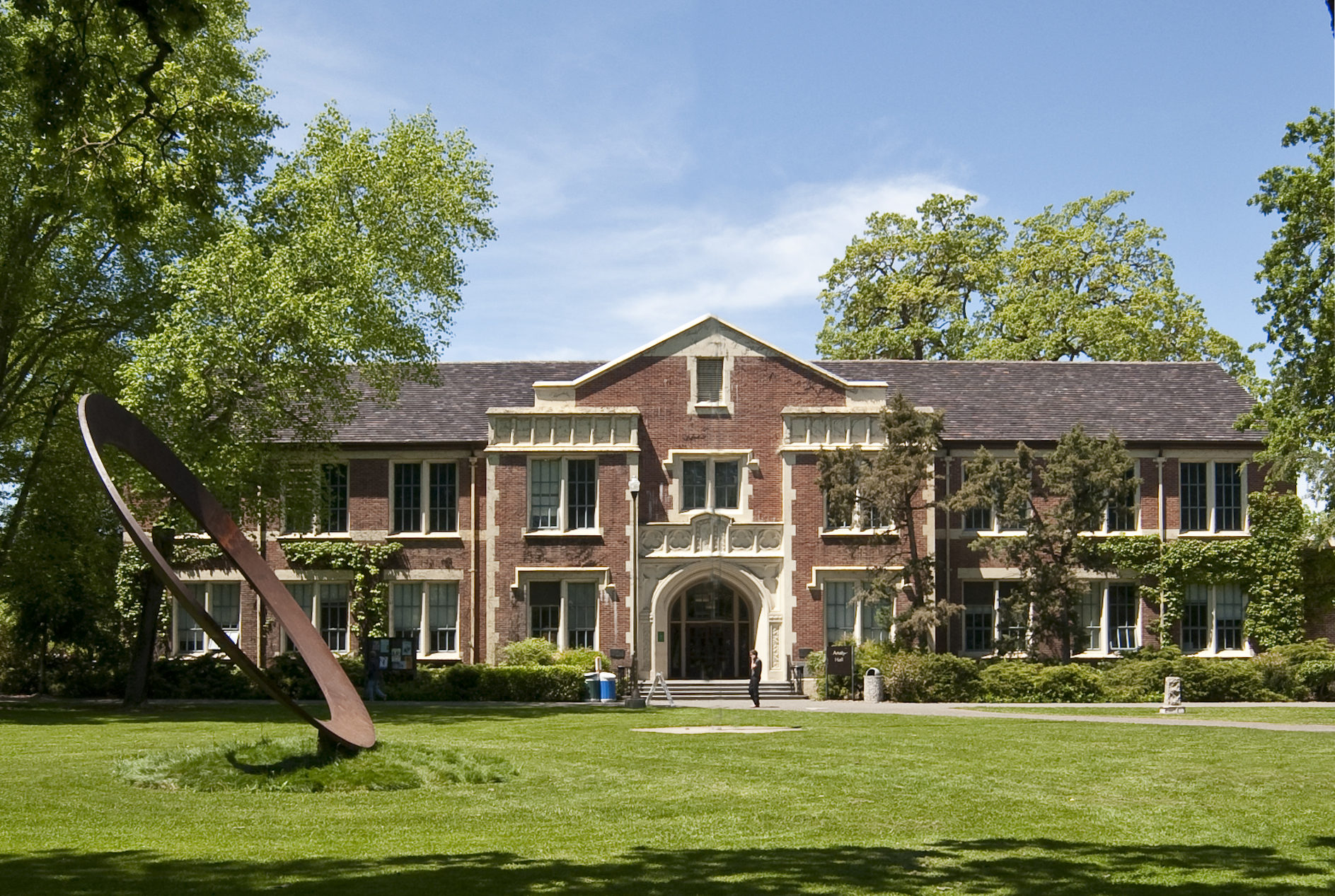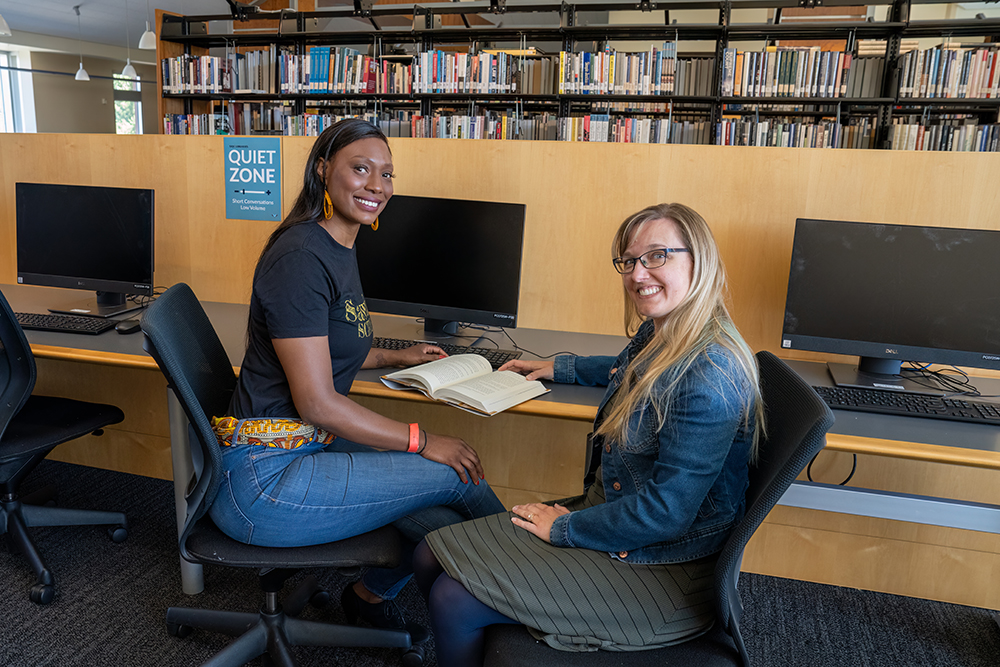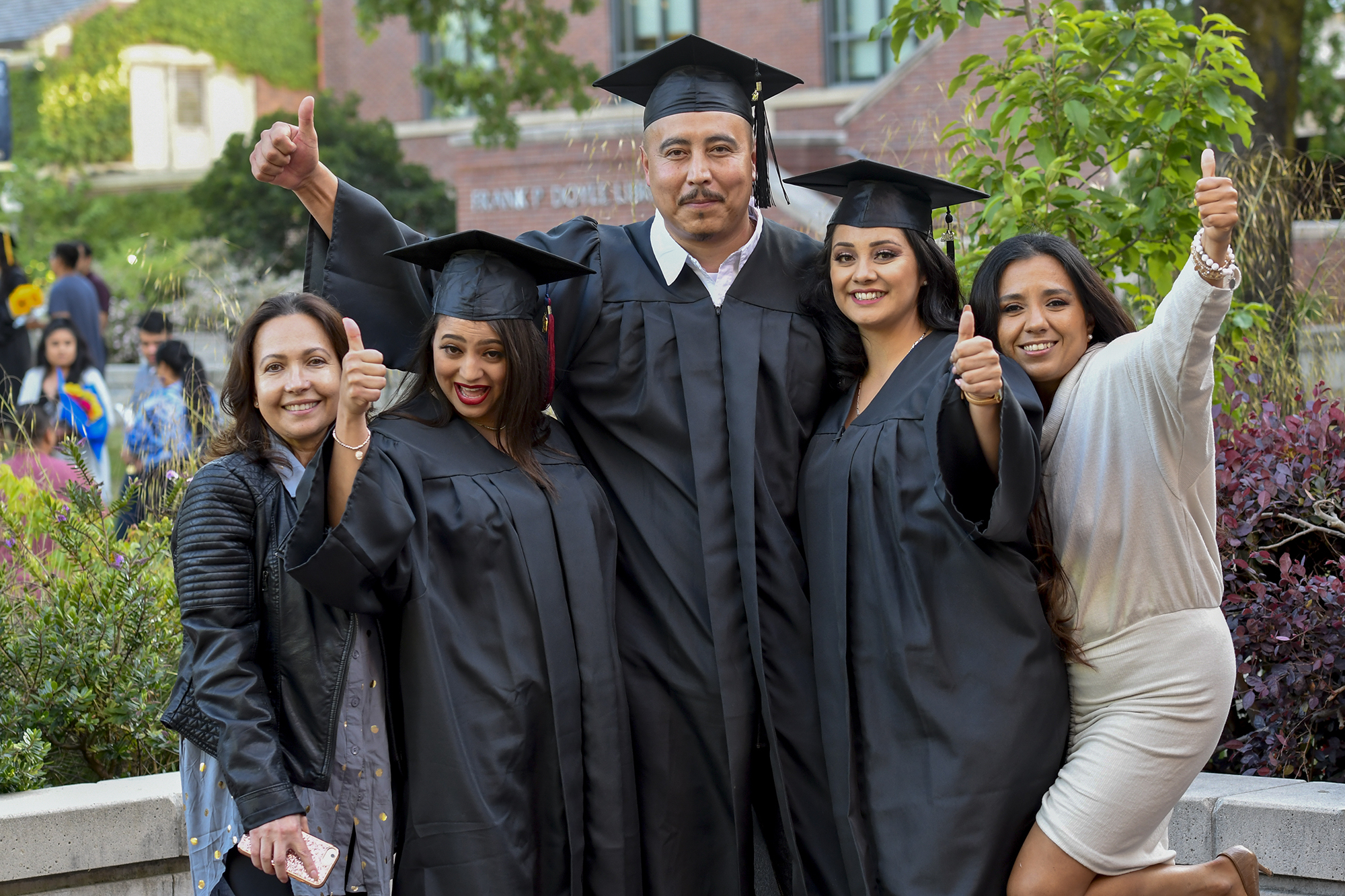Santa Rosa Junior College (SRJC) was founded in 1918 and is the tenth oldest public two-year college in California. The college has blossomed into a multi-campus college serving over 20,000 students in Sonoma County with a main campus in the heart of Santa Rosa featuring beautiful turn-of-the-century ivy covered buildings and state-of-the-art classroom and laboratory facilities. The college has a permanent branch campus, two additional teaching locations, and a self-sustaining farm, which generates income and provides hands-on learning opportunities for students.
During my visit I had the opportunity to tour the park-like campus, connect with SRJC’s new president Dr. Angélica Garcia, and learn more about the college’s community impact. SRJC’s meaningful presence in the local community is clear, and the college was proud to share more about a stand-out program, the Hispanic Serving Institution initiative, Lanzamiento.
Lanzamiento
Santa Rosa Junior College is a formally designated Hispanic Serving Institution by the U.S. Department of Education (ED). In 2020, they were awarded a Title V/ DHSI grant by ED and established the Lanzamiento Initiative, which is designed to strengthen and enhance the academic pipeline of Latinx and low-income students by increasing access to college programs, improving course completion and success rates, and increasing transfer, degree completion, and/or certificate completion in the targeted population. Lanzamiento is a strategic, research-based, and best practice response to systemic challenges and opportunities.
After identifying disproportionate achievement gaps among Latinx students entering SRJC, Lanzamiento activities were built to reduce those gaps. Grounded in research-based best practices, the grant activities are crafted to increase success rates through:
- a comprehensive and aligned pre-matriculation and onboarding initiative;
- enhanced curricular pathways and instructional approaches;
- embedded and aligned learning support resources; and
- a new transfer and completion initiative.
Grant activities are crafted to increase the percentage of Hispanic low-income students completing transfer-level math and English in their first academic year, rates of earning “A” grades, course completion rates, and transfer rates. Building on the strong academic program already in place, Lanzamiento focused its efforts on embedded and aligned learning support resources through integrated tutoring, peer coaching, and library support in Lanzamiento designated sections.
Catherine Prince is the Dean of Instruction and Strategic Program Development at SRJC and she discusses the importance of curriculum development to student success. “Through the Lanzamiento Initiative, efforts have been made to decolonize curriculum and include culturally relevant material in the classroom. Students can see themselves in the curriculum, which leads to increased engagement and completion rates”. When comparing the 2019-20 cohort completion rates (degree or transfer) to the 2020-21 cohorts, Latinx students are completing at a higher rate than the overall student population.
Data-Informed Metrics
The Lanzamiento Initiative utilized equity data to develop the activities and processes central to the program. Through a review of research-based practices in tandem with current and incoming student data, Lanzamiento identified a few key areas to address student learning through equity practices.
1. By providing culturally responsive curriculum and addressing the cultural disconnect in traditional courses, student course completion rates have improved. In the first two and a half years of the initiative, SRJC has seen an increase in transfer rates in Latinx students from the baseline of 25% to 35.2%, an increase in completing transfer level English and Math in their first academic year from 5% to 9.3%, and the rate of earning an “A” has increased from 30% to 34.9%.
Cultural aspects central to the Lanzamiento Initiative reflect themes of bilingualism, transnational experiences, immigrant communities, Latinx authorship, academic scholarship, and activism. This, coupled with faculty led Communities of Practice (an initiative focused on culturally grounded, equity-centered, and interdisciplinary practices with faculty working together to diversify their curricula and create equity-centered classroom experiences for SRJC students), has led to the revision and decolonizing of curricula across the college.
2. Through the use of annual performance measures, the Lanzamiento Initiative has ensured the programs funded under the grant are addressing the identified equity gaps. From its inception, the core of the initiative has been the Lanzamiento designated sections in the class schedule, which allows students the opportunity to participate in courses across the College. In Fall 2023, 99 sections were Lanzamiento sections, with over 3,465 students, triple the number of students in year one of the grant.
The impact of the Lanzamiento Initiative at SRJC is profound.
Jennifer is a former Lanzamiento student and now participates in SRJC’s Peer Assisted Learning Specialist (PALS) program – an equity-oriented program that seeks to increase student knowledge and skills by fostering community, agency, and persistence in the classroom. The PALS Program seeks to end disproportionate impact by providing instructional assistance and embedded tutoring. Students who have successfully completed courses are invited back to mentor and tutor current students so that they may find greater academic success.
Jennifer shares her story below:
Having a dual identity with a dysfunctional family is quite challenging. My parents migrated from Mexico to the United States in search of the American dream. My dad arrived first then my mother and older sister followed. Since I was the first born American my parents named me Jennifer, but they struggled with pronunciation. They called me Yenny-four. Another thing they struggled with was survival. When my mother was pregnant with me my drug-addicted, alcoholic father beat her until she bled and was close to being unconscious. Unfortunately that is how my story began. From the womb to age seventeen all I knew was physical, mental and sexual abuse. The physical abuse came from my father. Mental and more physical abuse came from my mother. Repeated sexual abuse came from a uncle. To make matters worse I was silenced as a child. When I spoke up I was beaten because my parents thought I was being an impolite, bad-mannered, spoiled brat. I carried all this with me throughout elementary, middle school and high school. I was seen as a sad, shy, poor Mexican girl with no future. In fact no school administrator paid attention to me and if they did it was to look down at me.
At age twenty-one I became a mother. When my son was five months old I nearly lost him to a misdiagnosis. Seven years later, my son’s medical condition was stabilized. I decided to enroll in Santa Rosa Junior College. That’s when my new journey began. With no remorse I started college skills classes. There I found a teacher who sincerely believed in me which made me do better. The following semester an English professor advised me to record myself when I spoke and then listen to it. When I did that I began analyzing my messages, approach and tone of voice. Later on in the semester that same professor told me that I was a good writer, hearing that shocked me. I’ve heard that from my sisters, but this time it was different because I knew I could do something with it. That’s when I found my voice and began working on self-confidence. After that my shyness remarkably subsided and I began interacting in class. I felt free and was hungry for more, so I enrolled in a Lanzamiento class. Then my world became much brighter. The dots started connecting. I found my roots, my culture, and people who have similar stories as mine and are also striving for a better future. Lanzamiento has helped me in many ways such as my healing process. I learned how to be resilient. I did this by attending their events like native american dancing, and healing circles. Thanks to Lanzamiento I found my identity as a proud Latin-American woman. I hope that my story helps others find resilience. We must remember that our past doesn’t define us, it only builds character.
To learn more about Santa Rosa Junior College, visit their website at https://www.santarosa.edu/.










